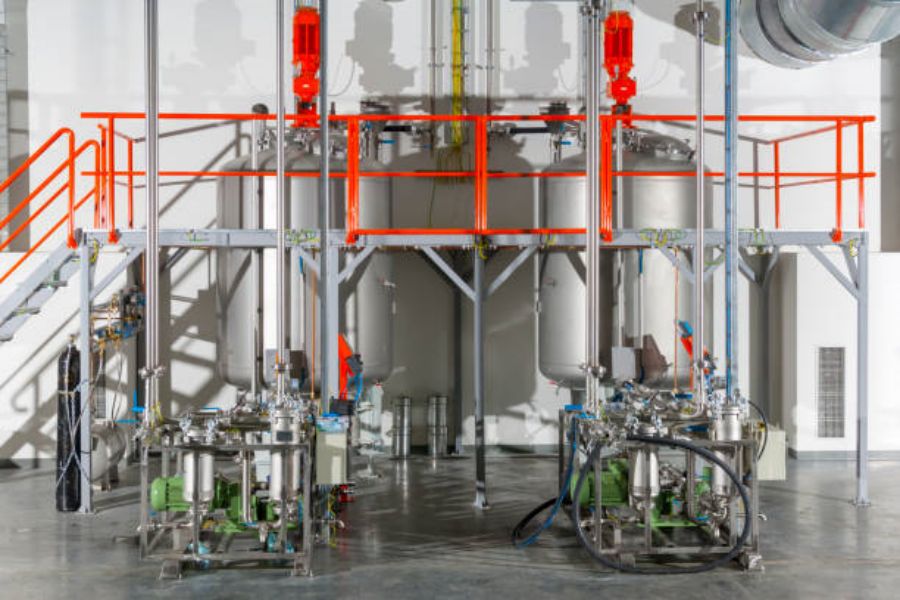Understanding Compressor Tripping on High Pressure
Compressors are crucial components in various industries, including manufacturing, refrigeration, and HVAC systems. However, there are instances when a compressor may trip on high pressure, causing disruptions in operations. In this article, we will explore the reasons behind compressor tripping on high pressure and discuss potential solutions to resolve this issue.
1. Insufficient Airflow
One common reason for a compressor tripping on high pressure is insufficient airflow. When the compressor is unable to expel heat efficiently, the pressure inside the system increases. This can occur due to blocked vents, dirty filters, or even a malfunctioning fan. Regular maintenance and cleaning of the system's air pathways can help prevent this problem.
2. Dirty Condenser Coils
Condenser coils play a vital role in the cooling process of a compressor. Over time, these coils can accumulate dust, debris, and other contaminants, hindering their ability to dissipate heat effectively. As a result, the pressure inside the system rises, triggering the compressor to trip. Regular cleaning and maintenance of condenser coils can alleviate this issue and improve system performance.
3. Refrigerant Leak
A refrigerant leak can disrupt the normal functioning of a compressor system, leading to high pressure and eventual tripping. When the refrigerant level drops, the compressor works harder to maintain the desired temperature, causing an increase in pressure. Detecting and repairing refrigerant leaks promptly is crucial to prevent compressor tripping and ensure optimal system performance.
4. Faulty Pressure Switch
The pressure switch is responsible for monitoring and controlling the pressure levels within a compressor system. If the pressure switch malfunctions or becomes faulty, it may not accurately detect the high pressure, leading to the compressor tripping unnecessarily. Regular inspection and maintenance of pressure switches can help identify and resolve any issues before they cause major disruptions.
5. Inadequate Lubrication
Adequate lubrication is essential for the smooth operation of a compressor. Insufficient lubrication can cause increased friction and heat, resulting in high pressure and tripping. Regularly checking and replenishing the lubricant levels can help prevent this issue. Additionally, following the manufacturer's recommendations for lubricant type and frequency of application is crucial.
6. Overload Conditions
Compressors are designed to operate within specific load limits. If the system is subjected to excessive load or if there is a sudden surge in demand, the compressor may trip due to high pressure. Ensuring that the system is not overloaded and providing adequate ventilation and cooling can help prevent this issue.
7. Malfunctioning Valves
Faulty valves within the compressor system can disrupt the flow of refrigerant and cause pressure buildup. This can lead to the compressor tripping on high pressure. Regular inspection and maintenance of valves can help identify any issues and prevent system disruptions.
8. Electrical Problems
Electrical problems, such as faulty wiring or issues with the motor, can cause the compressor to trip on high pressure. These problems can prevent the compressor from functioning properly, leading to increased pressure within the system. Regular inspection of electrical components and addressing any issues promptly can help prevent compressor tripping.
9. Ambient Temperature
The ambient temperature surrounding a compressor can affect its performance. High ambient temperatures can make it difficult for the compressor to dissipate heat effectively, resulting in increased pressure and tripping. Adequate ventilation and cooling measures should be in place to mitigate the impact of high ambient temperatures.
10. System Design and Capacity
Inadequate system design or undersized components can contribute to compressor tripping on high pressure. If the system is not designed to handle the required load or if the compressor's capacity is insufficient, it may struggle to maintain optimal pressure levels. Consulting with a professional to ensure proper system design and capacity can help prevent this issue.
